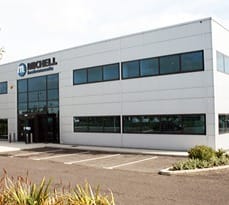 Global technology company Michell Instruments has implemented a fresh approach to innovation to help achieve a £50 million turnover in the next three years, following attendance at the five-day executive programme ‘Making Your Organisation Innovative’ at Cambridge Judge Business School Executive Education, part of the University of Cambridge.
Global technology company Michell Instruments has implemented a fresh approach to innovation to help achieve a £50 million turnover in the next three years, following attendance at the five-day executive programme ‘Making Your Organisation Innovative’ at Cambridge Judge Business School Executive Education, part of the University of Cambridge.
With 2014 looking to be a significant phase for the company’s growth, Group Head of Marketing Peter Kubietz signed up to the programme to ensure the company consistently evolved its approach to innovation.
Michell Instruments is a worldwide leader in the field of moisture and humidity measurement solutions. It designs and manufactures a wide range of transmitters, instruments and system solutions capable of measuring dew-point, humidity and oxygen in a variety of applications and industries including compressed air, power generation, process, oil and gas, and pharmaceutical.
It has experienced rapid growth with turnover increasing fivefold over eight years, and is now in the process of applying an accelerated business plan to capitalise on this growth.
‘Making Your Organisation Innovative’ is an intensive five-day programme designed to elevate innovation to a core organisational capability. During the programme participants are drawn to understand how to properly leverage a key driver of innovation: creativity. It is intended for leaders, executives, middle and senior managers, and marketing executives wishing to drive forward the business through innovation, as well as executives wishing to understand and apply the process of creativity to their organisation.
Since completing the programme, Peter believes that the key is to compose a diverse team of people willing to challenge each other, which will in turn generate innovation and growth. He explains:
Michell Instruments is driven by technology and engineering, and operates in an industry which heavily relies on innovation if you want to grow and survive. Our company has no doubt been highly successful in becoming a significant player in the market; however it has been typically steered by many ‘me-too projects’ which have the potential to detract from the innovation values that the company was originally built upon.
A highlight of the programme for Peter was the clarity in finding that innovation can come from anywhere within an organisation, beyond products and services and into new business models. The course covered a number of topics, including different types of innovation, tools for enabling creativity, and the selection of the right creative ideas to drive innovation through the business.
Peter continues:
To me the most important thing is that innovation is not just technology and engineering, but about how we recruit, retain, and make the most of talent. We will now look to create an atmosphere in which innovation can flourish by encouraging controversial and constructive discussion. Previously when I would ask someone to do something I would anchor within the question what I thought was right, but I now see that this doesn’t always drive the best result.
On completion of the programme attendees are required to develop an action plan, and Peter’s was to create a portfolio strategy. The company’s accelerated expansion over the years had previously prevented it from being able to review and create a strategic long-term view, but the portfolio strategy is now a functional part of its overall growth plan.
Peter concludes:
Prior to the course I had no real concept of executive education, but Cambridge has an excellent reputation and I chose it because the theme was fitting to our organisation. I believe it is about leaving the rat race for a while and going back to academia for fresh ideas. It is important to remember that the world never stays still, so you always need to be thinking about your next move and keeping ahead of competitors.

